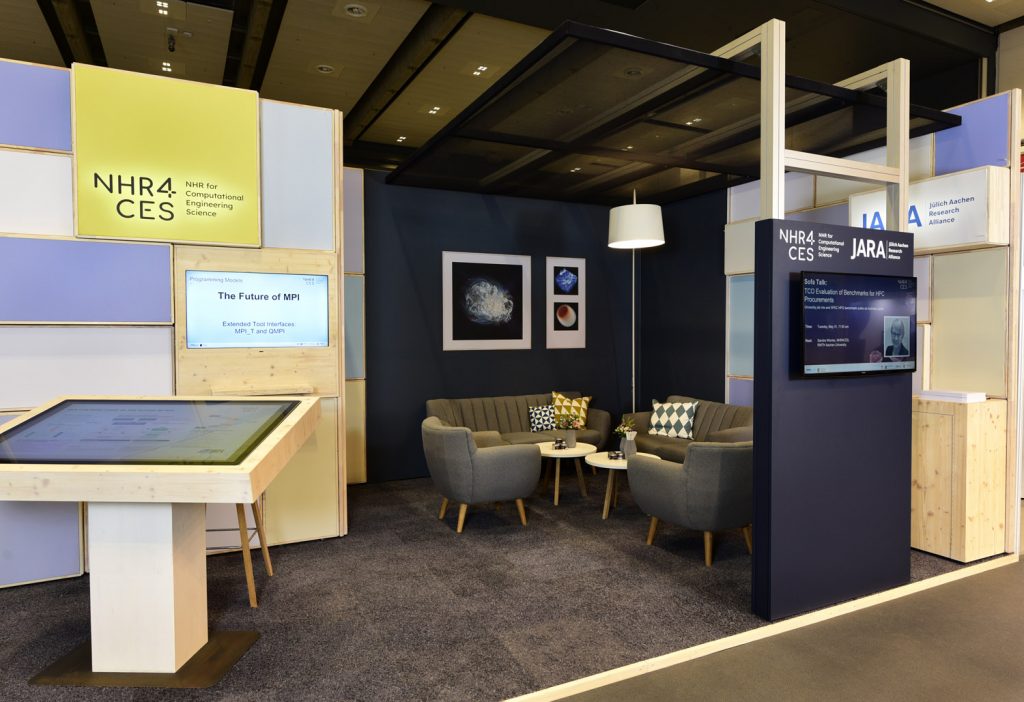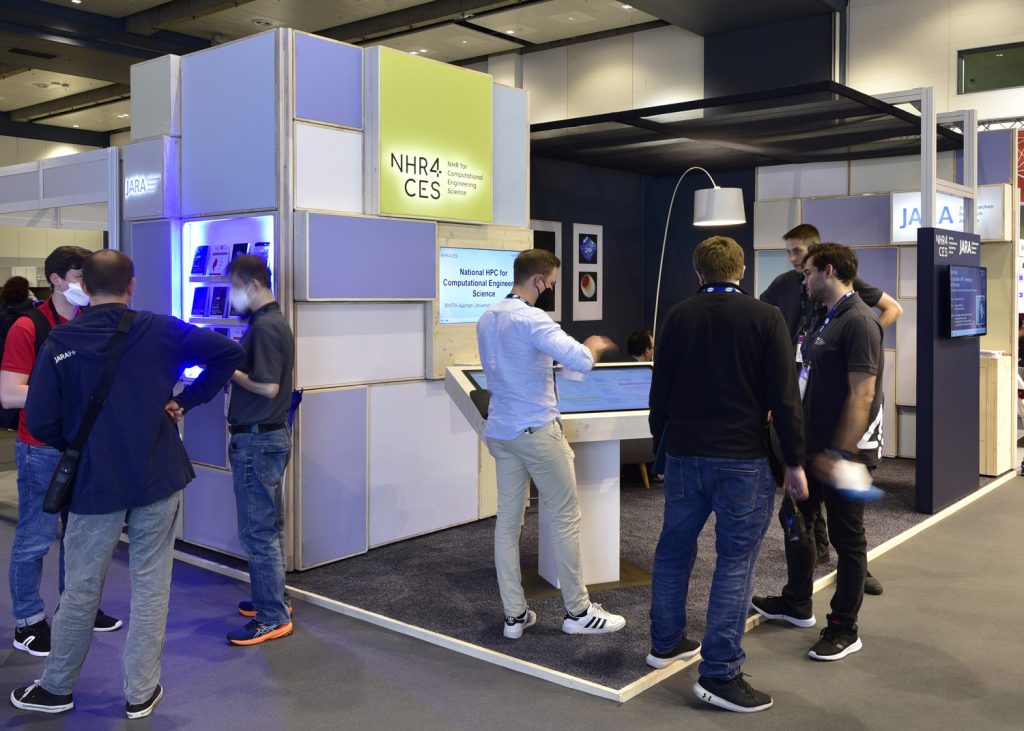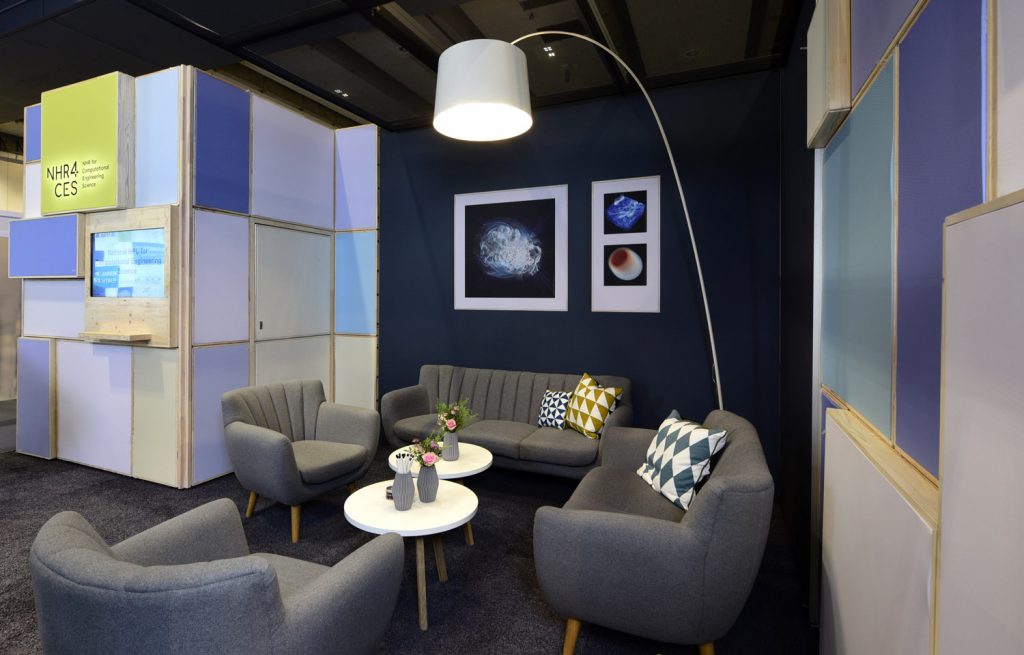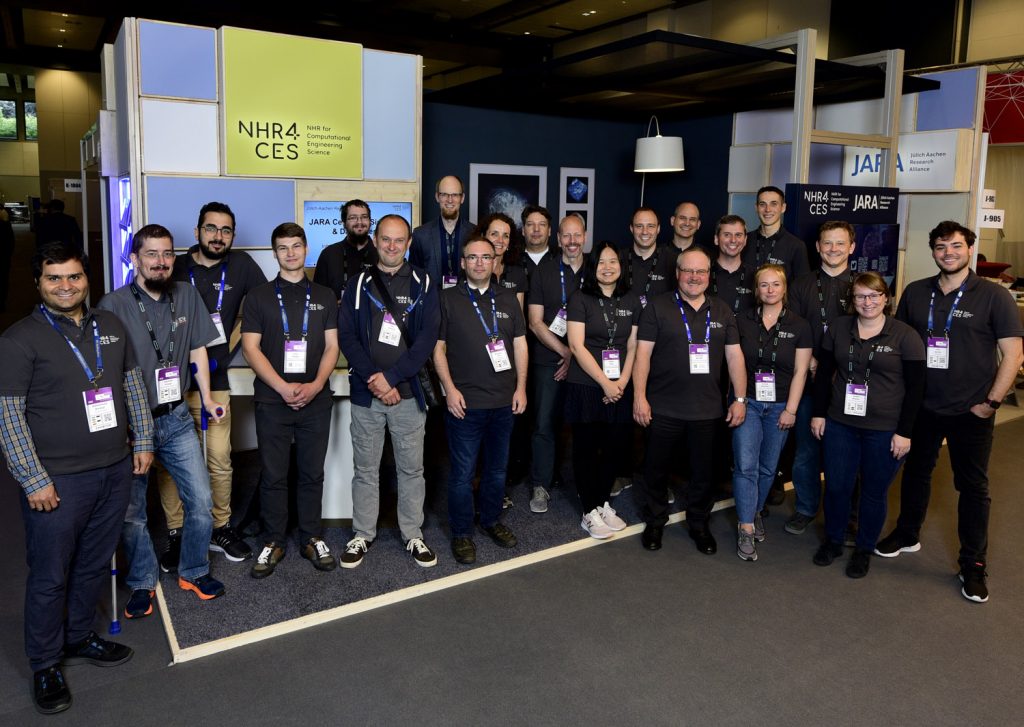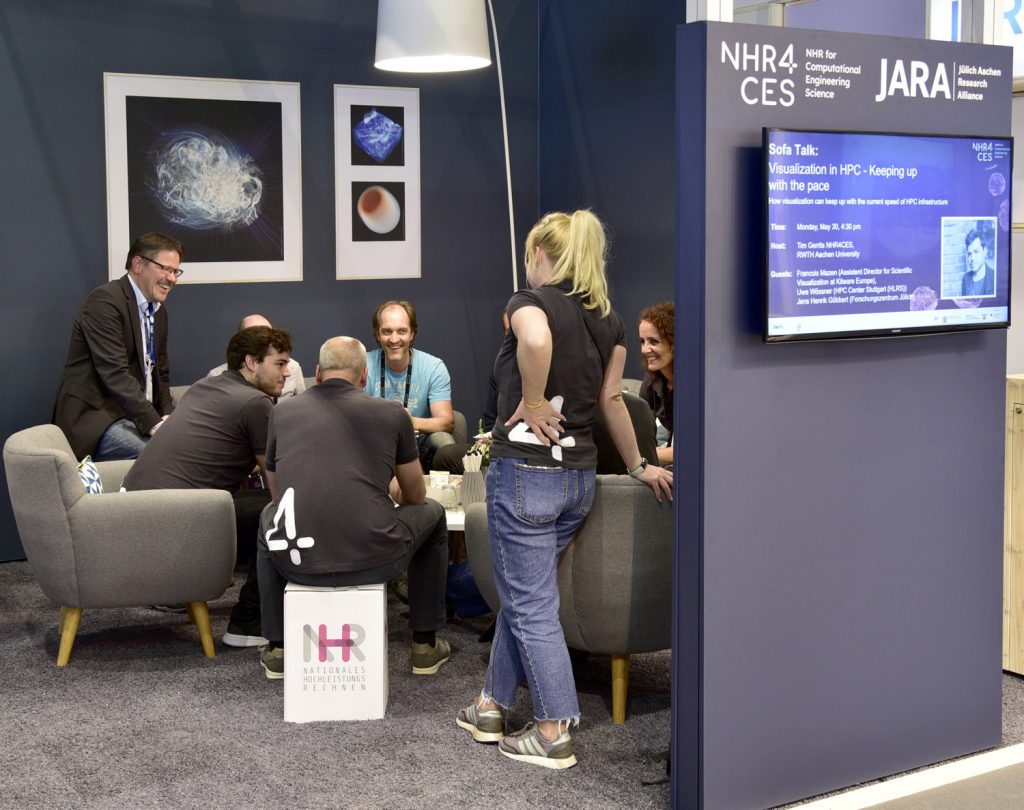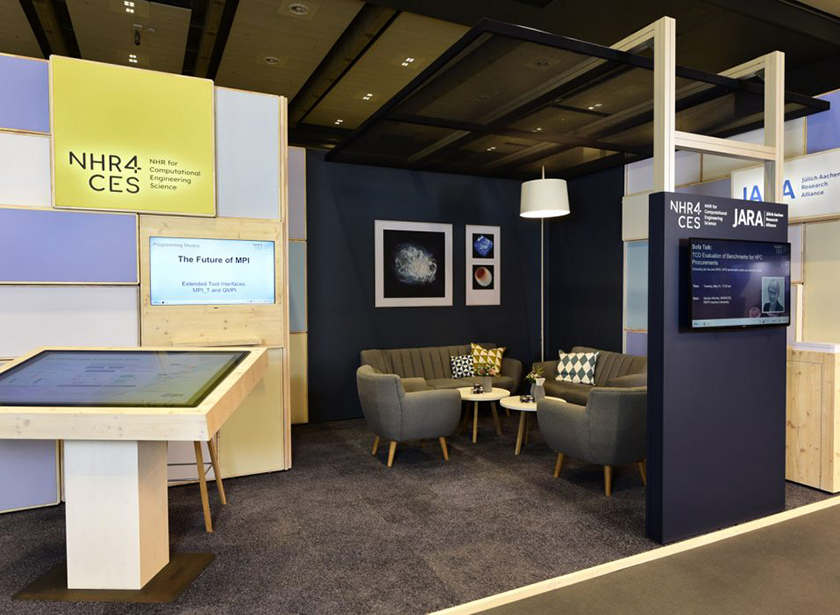That’s a wrap: From May 29 to June 2, 2022, the ISC High Performance Computing conference took place in Hamburg. An event we were looking forward to for various reasons. This ISC was the first one in which we as NHR4CES participated on site.
It was an important step to show presence, meet the community and give further visibility to our center and the infrastructure, services and opportunities that NHR4CES offers. In interesting conversations, we were able to communicate our motivation and vision establish new contacts. With 3007 visitors and 137 exhibitors, this year’s ISC exceeded all expectations.
In addition to the presence at the exhibition with our booth, our active offers were also very important in order to get into contact with other HPC experts at ISCWe were involved in various tutorials, workshops and talks at the conference. We also set up the so-called Sofa Talks: In this format, our experts invited guests to an informative, exclusive, and cozy exchange on our booth . Topics such as “TCO Evaluation of Benchmarks for HPC Procurements” or “JARDS4NHR: Online Application for HPC Resources” were discussed in a smaller, private group, which is rather unusual for the ISC. This approach and our setting – a comfortable booth with a living room vibe – enabled intensive discussions, which also have led to follow-up appointments and discussions. This format has shown everyone how important personal contact is for fruitful exchanges and collaborations.
Tim Gerrits, member of the CSG Visualization in NHR4CES, kicked things off with the topic Visualization in HPC – Keeping up with the pace. While hardware and algorithms for HPC simulations keep improving, this introduces challenges. Complex as well as massive data becomes increasingly difficult to analyze. However, as humans are incredibly well trained in using their visual sense, visualization is a powerful way to overcome some of the problems. Up to ten participants took part in this Sofa Talk, where Tim and his guests talked about exciting new developments for visualization approaches and broaden the network of visualization researchers. Among others were the guests on our sofa Francois Mazen (Assistent Director for Scientific Visualization at Kitware Europe), Uwe Wössner (HPC Center Stuttgart (HLRS)) und Jens Henrik Göbbert (Forschungszentrum Jülich). Since we had many different people with us, who are in different places within this network there was a lot of exchange about their own experiences, barriers and problems but also approaches that could show success in their own small scale.
Sandra Wienke, member of CSG Parallelism and Performance in NHR4CES and the HPC group at RWTH Aachen University, discussed the topic TCO Evaluation of Benchmarks for HPC Procurements – University job mix and SPEC HPG benchmark suites as business cases with her guests. While HPL and Stream benchmarks have a long tradition in HPC cluster procurements and acceptance tests, they do not reflect the real-world usage of an HPC cluster that often runs multi-node memory-bound jobs. To evaluate the real value of an HPC system, relevant and real-world applications should be included in the request for proposals (RP). Here, university job mixes and/or SPEC HPG benchmark suites can serve as business cases. Furthermore, total costs of ownership (TCO) comprising, e.g., running time of the applications, their energy consumption and cooling costs, play an important role in making informed decisions in procurements. The attendees discussed possibilities and challenges of such a benchmarking and TCO approach, to share their own experiences and to foster further steps with respect to benchmarking and TCO in general. In the process of the conversation it became clear that further exchange of information is desired here and that the participants want to stay in contact.
Tim Cramer, member of the HPC group at RWTH Aachen University, continued our Sofa Talks with the topic JARDS4NHR: Online Application for HPC resources. Since 2021 selected Tier-2 HPC Centers in Germany are restructured in a national HPC alliance (NHR) in order to join forces for a common offer for researchers. For HPC user convenience, a common infrastructure for the application, approval and allocation process based on the online system JARDS (developed by Jülich Supercomputing Centre) is currently build up. In this Sofa Talk, interested attendees learned more about the current status and discuss open questions. The eight participants talked about NHR application & reviewing processes, JARDS online system and NHR Reviewer Pool. Out of this Sofa Talk went a request for all NHR centers to look at JARDS with a request for feedback.
Joachim Protze and Christian Terboven from the CSG Parallelism and Performance and the HPC group at RWTH Aachen University hosted our last Sofa Talk on this year’s ISC: Contributions to OpenMP 6.0. Experts from the OpenMP Language Committee talked about ongoing affinity and tool support efforts. OpenMP 4 introduced first affinity concepts and OpenMP 5 introduced tool interfaces. In this sofa talk we will discuss ongoing efforts to improve OpenMP in these two aspects. Construction sites for both topics are tasking and target support.
The ISC was also an important step for the cooperation in our NHR4CES team itself. The complex preparation and implementation have bonded us as a team and we are very happy that the cooperation works very well.
Some impressions of the ISC High Performance 2022:
